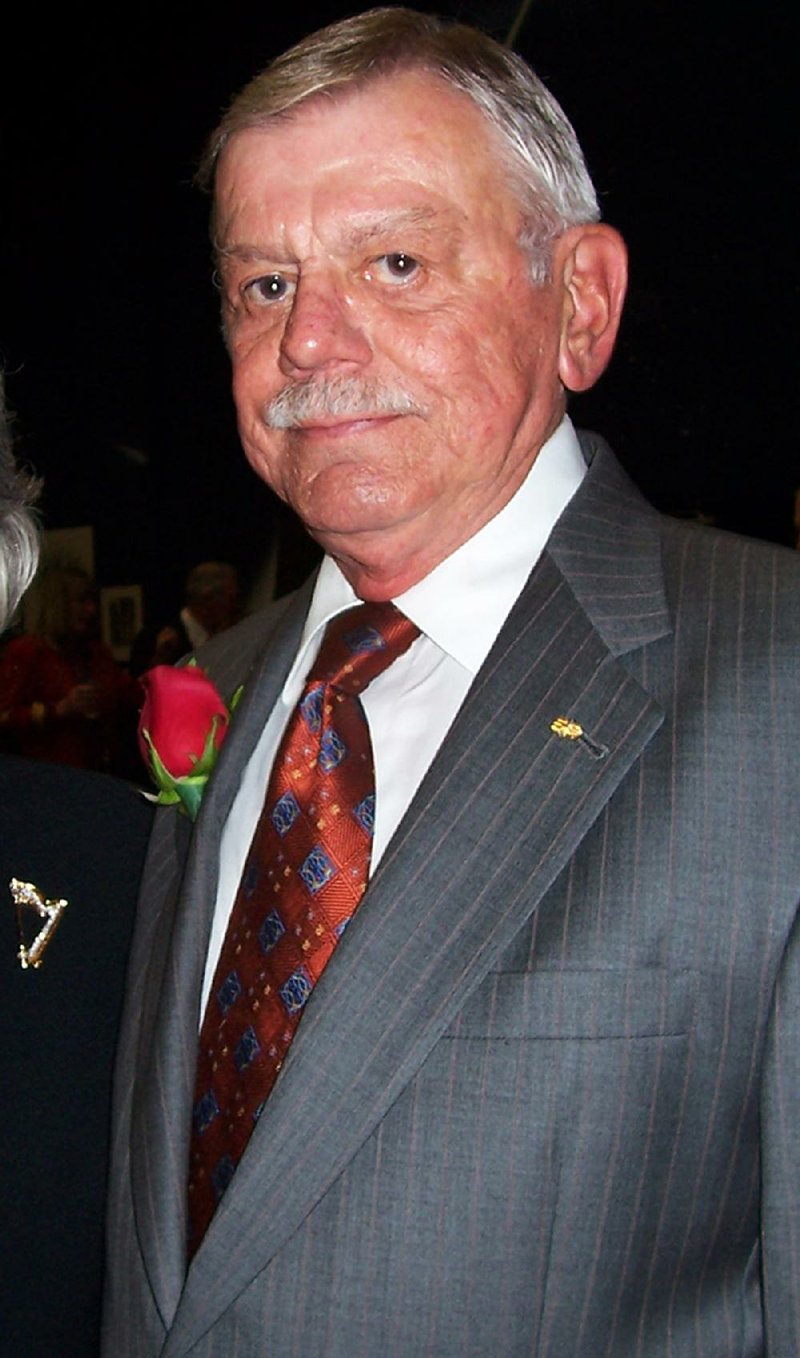Donald Lee Holbert's lifelong passion for aviation led him to pioneer the use of helicopters in news gathering and medical transport in Arkansas, and to his induction into the Arkansas Aviation Hall of Fame.
His father, Claud Holbert, who founded Central Flying Service, may have instilled in the younger Holbert that passion, but it was over the jungles of Vietnam as a young U.S. Army captain that he honed his skills as a helicopter pilot.
"He could make that helicopter walk and talk," recalled his brother, Richard Holbert, the president and chief executive officer of Central Flying Service. "It was part of him. It seems like he just had to look in the direction he wanted to fly and that helicopter would go."
Donald Holbert died Sunday of complications from chronic obstructive pulmonary disease. He was 75.
"On behalf of everyone at Central Flying Service, Don's family members and friends, we offer our loving gratitude in appreciation for the remarkable spirit and dedication with which Don Holbert served his country, his family, and Central Flying Service," the company said in a statement. "He will be sorely missed."
At the time of his death, Holbert was the chairman of the board of directors for the company, where he began his aviation career at age 14 and flew solo in an aircraft for the first time on the day after his 16th birthday. By the time he was 20, he was an aircraft pilot instructor for the company, which has been at Bill and Hillary Clinton National Airport/Adams Field, since the company was founded in 1939.
Holbert graduated from Wentworth Military Academy in Missouri in 1957 and, four years later, from Ouachita Baptist University in Arkadelphia, where he received an Army officer's commission with distinction through the school's Reserve Officer Training Corps.
He entered active duty in 1962 and served in a variety of posts that ended with a tour in Vietnam as a helicopter gunship pilot and platoon leader.
In a little more than 50 weeks over parts of 1967 and 1968, Holbert amassed nearly 1,000 flight hours in combat, Richard Holbert said. It was one particular mission in Vietnam that led him to be awarded the Distinguished Flying Cross with the 'V' device for valor.
The helicopter gunship platoon he was leading was "flying in support of friendly troops surrounded by a numerically superior enemy force," according to the citation for his award. "Making numerous firing passes over the enemy positions, his aircraft continuously came under murderously accurate enemy fire.
"One by one, the aircraft in his platoon were lost to enemy fire, but he stayed on, departing the area only to refuel, rearm and make emergency repairs to his battle damaged aircraft. Again Captain Holbert led his gun teams back to the area of operation."
When another aircraft was forced down by enemy fire, Holbert, "disregarding his own personal safety, braved the enemy fire to make repeated gun runs, keeping the enemy away from the downed ship, until the downed crew could make its way to the friendly lines. His actions were in keeping with the highest traditions of the military service and reflect great credit upon himself, his unit, and the United States Army."
Holbert also was awarded the Bronze Star, 32 Air Medals and the Vietnam Cross of Gallantry.
Upon his return from Vietnam, Holbert resumed his career at Central Flying Service, eventually becoming the company's operations director, president and, in 1981, chairman of the board.
In 1976, Holbert introduced the first turbine-powered helicopter in the state, a Bell Jet Ranger, arranging with Little Rock television station KARK-TV, Channel 4, for the station to use it with him at the controls.
He was the pilot in the helicopter that an NBC national news crew used to cover the escape and capture of James Earl Ray, who was convicted of killing the Rev. Martin Luther King Jr., in 1977. The same year, CBS enlisted Holbert and his helicopter to cover the funeral of singer Elvis Presley.
Holbert also established the helicopter medical transport program in Arkansas in 1985 at Arkansas Children's Hospital. Called Angel One, the helicopter provides critical-care transportation for pediatric patients in Arkansas and surrounding states. He was the first pilot for Angel One and operated it for several years before the hospital took it over full time.
By the time Holbert quit flying, he had amassed about 5,000 hours in the air, including the nearly 1,000 in combat all those years ago over the jungles of Vietnam.
Metro on 09/30/2015
